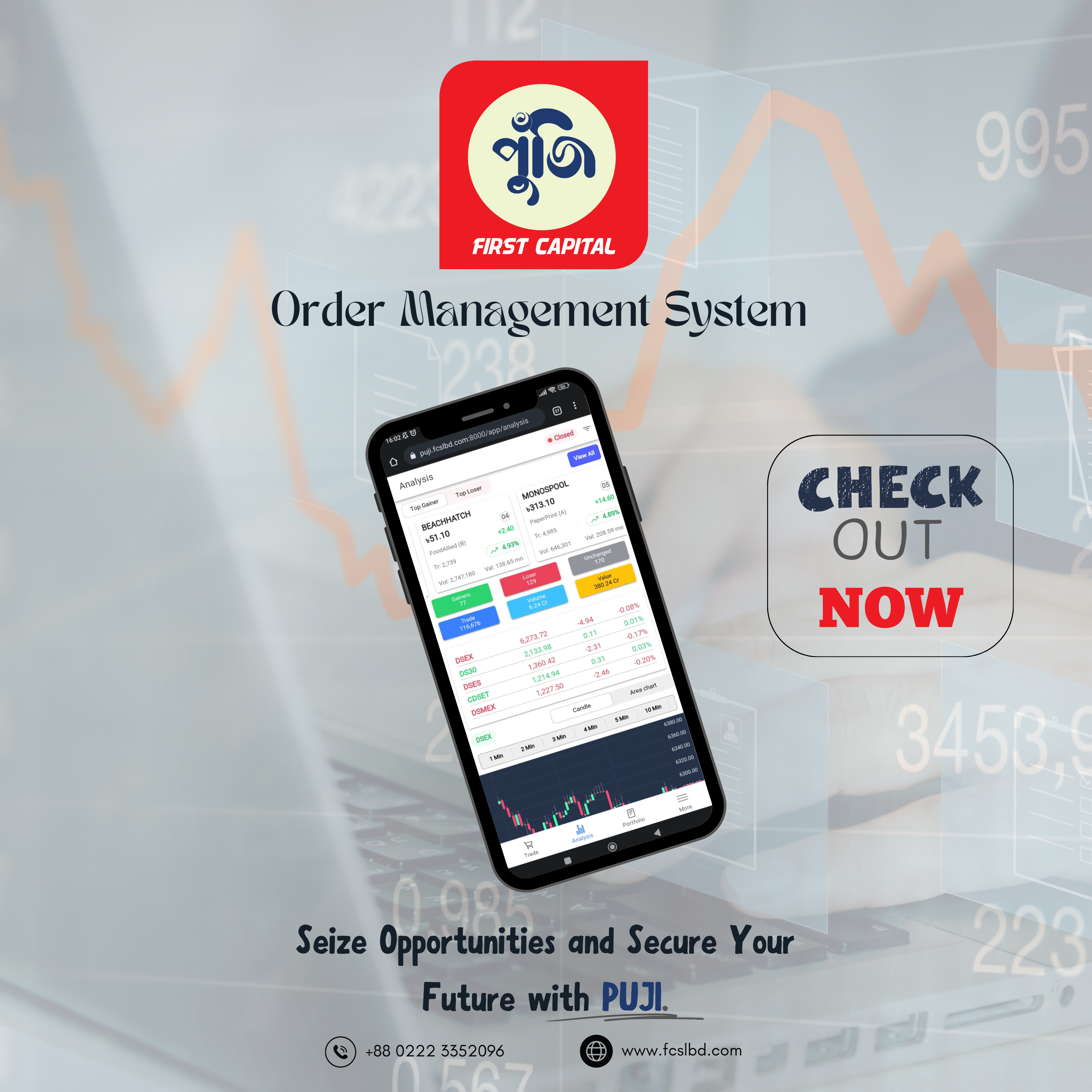He said the task force is addressing long-standing irregularities and corruption
The stock market is expected to regain momentum by June due to reforms that are currently underway, Dhaka Stock Exchange (DSE) Chairman Mominul Islam said today (18 January).
“Investors will start believing that reforms are underway. By June, some of these reforms may send a positive message to the market. We hope to see an improved situation in the stock market by June,” Mominul Islam said at the ‘CMJF Talk’ organised by the Capital Market Journalists Forum (CMJF).
He said the task force is addressing long-standing irregularities and corruption.
“Reform efforts have already begun. While not all reforms will be completed by June, some will be implemented, helping to restore investor confidence.

“Long-term credibility will be established in the capital market. There will be no unfair concessions, and investor confidence will return,” Mominul added.
He noted that the stock market in Bangladesh is currently very narrow and has lagged significantly over the past 15 years, whereas stock markets in other countries have progressed during the same period. However, all stakeholders in the country are now working positively to advance Bangladesh’s stock market.
“We are already moving forward with both long-term and short-term plans,” he said.
“It will take time to see the results of the long-term plan. It is like laying the foundation of a building — it remains invisible from the outside, even though it is the most critical part. Once the foundation is complete, everyone will see the construction of the building above it. The real work happens during the foundation phase.”
The DSE chairman emphasised that maintaining investor trust is essential, stating, “Everything will fail if we cannot maintain the trust of investors. That is why we are focusing on short-term plans.”
He highlighted four key priorities, including bringing good companies to the market in the short term, resolving the issue of negative equity, advocating for tax reforms in fiscal policy, and eliminating insider trading and market manipulation.
“We have zero tolerance for insider trading,” he asserted.
He further stated that the DSE is seeking government assistance, similar to the stimulus provided to the banking sector, to help restore investor confidence more effectively.
Market’s challenges run deep
The DSE chairman said efforts are underway to elevate the stock market to its desired position. However, he acknowledged that the challenges facing the market are deep-rooted and will require time to resolve.
Reflecting on past shortcomings, he said, “The stock market in Bangladesh has not fulfilled its expected role. We are far behind the desired level. The stock exchanges have faced numerous issues, including unwarranted regulatory interventions, inefficiencies, and technical limitations in human resources. Additionally, there are constraints within the Demutualisation Act.”
He said the absence of a chartered accountant at the DSE as a critical gap, adding, “We are working on bringing in a chartered accountant to address this need.”
Addressing broader economic concerns, Mominul said, “Currently, our inflation and foreign exchange reserves are not in an ideal state. While the banking sector has shown some signs of stability, we have not yet reached our expected goals. For example, the import of capital machinery has declined, signalling a slowdown in real economic investment.”
He emphasised that the capital market reflects the overall economy, adding, “If economic investment does not improve, the stock market will struggle to progress. It is essential to keep this broader perspective in mind as we work toward reform.”
Focus on good IPOs
The DSE chairman stressed the importance of bringing high-quality companies to the market through initial public offerings (IPOs) to restore investor confidence in the short term.
“We are already in discussions with several local and multinational companies, encouraging them to raise funds by offloading shares in the capital market,” he said. “Rather than imposing pressure to bring new and high-quality companies to the market, the DSE is focusing on encouraging companies to list through financial incentives. To support this, tax incentives have been requested from the government, and it is hoped that we will see some reflection of these incentives in the upcoming budget.”
Mominul expressed optimism, saying, “If we can bring some reputable companies to the market, it will generate excitement and optimism. Many inactive investors will return to the market, creating a positive trend and boosting overall market activity.”
Preventing manipulation
Mominul identified two key issues as major problems in the stock market: manipulation and insider trading.
He explained that, in the past, stock exchanges, as the primary regulatory body, lacked the authority to take immediate action against market manipulation. The exchanges’ role was largely passive, akin to that of a post office.
However, in the current environment, the goal is to position the stock exchange at the forefront of market development. To achieve this, several legal reforms have been initiated.
“The approval of the regulatory body was previously required for inspecting or investigating companies listed on the stock market. To address this limitation, we are working closely with the regulatory body to enhance its legal authority,” he said.
Additionally, the DSE chairman pointed out significant flaws in the delisting policy for listed companies. Efforts are underway to reform this policy as well.
He also said if a company performs poorly or faces financial difficulties due to internal irregularities or mistakes, without any valid reason, the DSE intends to adopt a stricter stance.
“We are working on amending the delisting policy to ensure that such companies do not receive government benefits, new business opportunities, or bank loans,” he explained.
Additionally, initiatives are underway to enhance the quality and credibility of financial reports from listed companies. There is a significant trust deficit among investors regarding the financial reports provided by these companies, he said.
As a result, many companies appear to be highly profitable before they go public, only for their financial health to deteriorate shortly after listing. This has led to the emergence of “sick” companies within a few years of being on the stock market, he continued.
Increasing investor protection fund
Mominul Islam said the DSE is exploring the introduction of integrated back-office software to prevent instances of embezzlement of investor funds by brokerage houses.
He also mentioned plans to increase the size of the investor protection fund to ensure compensation for investors impacted by such incidents.
Additionally, funds will be made available to investors by liquidating the assets and licenses of brokerage houses involved in such incidents.
Furthermore, he highlighted that the Bangladesh Securities and Exchange Commission (BSEC) is working on a proposal to allocate a portion of the penalties imposed on market manipulators and companies into the protection fund.
Addressing technical glitches
In response to the recent trade disruptions caused by technical glitches, the DSE chairman said, “The core strength of a modern stock exchange lies in its technical infrastructure, as all transactions and settlements are now processed electronically.”
“The platform we are building is considered to meet international standards. However, there are still some minor glitches, which I believe are due to process limitations. Once the required standard protocols are fully implemented and stabilised, the occurrence of such incidents will be minimised,” he added. https://www.tbsnews.net




